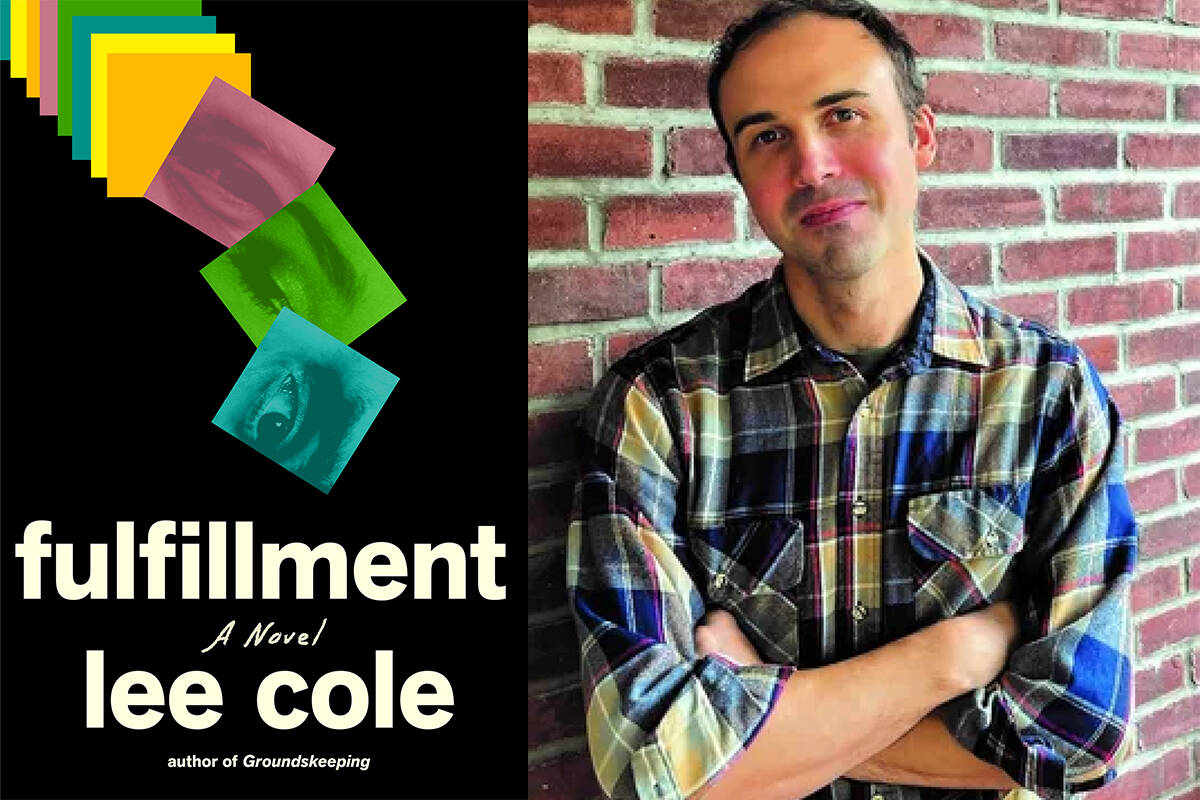A rising literary star delivers in ‘Fulfillment’
Don’t look now, but a colossal literary career is sneaking in under the radar. Three years ago, Lee Cole’s splendid debut, “Groundskeeping,” explored the impact of the 2016 presidential election on a divided Kentucky family. He is back with “Fulfillment,” a companion piece and a colder, wiser novel for Trump 2.0, lit by an eerie glow.
We have been here before and yet haven’t learned anything, a country playing Russian roulette.
After a string of low-income jobs, Emmett Shaw, 28, returns to his native Paducah, where his mother, Kathy, lives in her Dream Home, a vinyl-sided prefab. He checks on his dementia-addled grandmother, Ruth, and juggles night shifts at a distribution center a short drive away, owned by Tempo, a big-box retailer.
As Cole’s opening makes clear, “Fulfillment” bores into layers of American caste: “Some of the workers commuted from Bowling Green or Elizabethtown, but most came from the forgotten hamlets of the surrounding counties, places with names like Horse Branch and Sunfish, Spring Lick and Falls of Rough. There had once been coal mines and tobacco stemmeries in that area, auto plants and grist mills. But all those enterprises had fled or been shuttered.”
Emmett sorts parcels, sending them along to their destinations. He is strapped for cash, a dropout moving through the world at a slow tempo. Occasionally he meets his co-worker Kaleb at a dive bar, Aloha’s, drinking himself blind as they ponder a heist. Each day’s the same old, same old.
Emmett longs for a creative life, though; in his spare time, he jots down screenplay ideas, “a mess of disjointed scenes and placeholder dialogue.” His ennui lifts when his elder brother and sister-in-law arrive from New York, where Joel teaches critical theory and the honey-haired Alice, an environmentalist, putters around in a community garden. They have come south in the wake of coronavirus quarantines, ostensibly for Joel’s semester at a local college but really to help him reconnect with his family.
Joel’s the one who got away: undergrad at Northwestern University, an academic stint at the University of Illinois. He has published a book on rural despair, cites Marx and Lacan, and condescends to Kathy, whose MAGA views strain their relationship. She’s still crazy about him, her gifted son. Emmett feels left out, a rivalry Cole borrows from John Steinbeck’s “East of Eden” and Genesis.
Alice, unhappy in her young marriage, catches Emmett’s eye, and he hers. The affair unfolds in bursts. Alice surrenders to a dizzying emotion: “She felt herself rising, into the star-flecked emptiness, above the little village, above the tartan plains, till she reached a lightless place where the pull of gravity was singular and irresistible.”
Cole paces himself methodically, tilting and skewing his plot a la David Lynch.
Ominous encounters, star-crossed lovers, rifts between red and blue America, flawless prose: “Fulfillment” expands on themes and technique laid down in “Groundskeeping.” Cole’s details are precise: Ruth’s collection of faded Beanie Babies; a jar of congealed grease; needlepoint hung on walls; Baptists who missed the elevator to the middle class. The author’s ear is keen as well, drawing on Southern speech, Kaleb’s malapropisms, Kathy and Joel’s political quarrels.
What has changed is Lee Cole. “Groundskeeping” is generous to its characters, shaped by the notion that what unites us is stronger than what divides us. Here his voice is steelier, honed by insurrection and the pandemic, honest if less hopeful.
Is our nation too big to fail, or is it failing because we’re too big, a vastness corralled into social networks? This is the urgent question Cole poses, his brilliant book more than a tale of a small-town adultery and its consequences.
This is an excerpt from a Washington Post story.















